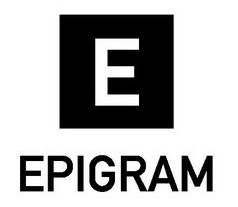Asian Books Blog is based in
Singapore. Lion City Lit explores what’s going on in the City-State,
lit-wise. This month, I meet Edmund Wee,
the founder, publisher, and CEO of Epigram Books, one of Singapore’s largest
general trade publishing houses.
Edmund is passionate
about locally-written literature, and locally-published books. I met him on the
fringes of The Asian Festival of Children’s Content, an initiative of the
National Book Development Council of Singapore. “The government should
be pushing local books.” He said. “Would the Danish Book Development Council
try to promote books from all over Europe? Would the American Book Development
Council try to promote books from Mexico? So why does the Singapore Book
Development Council promote content from all over Asia? They should offer a
festival of Singaporean content.”
Edmund sees the government’s internationalist
stance as part of a wider problem: Singaporeans are less interested in local
literature, than in blockbuster books from the big, international
English-language publishers. This relative lack of interest is reflected in
local press coverage. “The media are supportive, but they could do so much
more. The Singapore Straits Times
offers a monthly round-up of locally published books, but there are enough
books coming out that they could easily make it weekly.” He has a point: Epigram alone publishes
approximately 50 titles per year, a mix of children’s books, graphic novels,
fiction and non-fiction, meanwhile, the Singapore Book Publishers Association
has nearly 100 members engaged in a wide range of publishing, marketing and
distribution activities.
One reason Singaporeans may be
reluctant to read locally-produced books is that many of them are more-or-less
unedited, and standards of design and production are often low. Edmund has a design background, and Epigram
Books is known locally for its high standards of design and production. “I want
to see Singapore-based publishers doing things properly, and professionally,
and keeping all aspects of book production in Singapore, rather than sending
work to editors and designers elsewhere.”
In accordance with this ambition,
Edmund has organised a series of seminars, The
Finer Art of Editing, open to anybody who is interested. These involve internationally renowned authors,
such as Tash Aw, explaining how they have worked with editors, and how their
work has benefitted from the editing process – not just copy editing, but constructive
criticism of fundamental elements of the writing, such as pacing, or cutting
whole scenes, or re-writing significant chunks. The June seminar will be with
Robin Hemley, who is both an author, and a teacher – he is head of the creative
writing programme at one of Singapore's most prestigious universities, Yale-NUS. For
more details of The Finer Art of Editing,
see Epigram’s Facebook page.
Edmund's enthusiasm for local
literature is so great that he is even sponsoring a new annual prize, The
Epigram Books Fiction Prize. The prize, worth SGD 20,000 is open
to Singaporeans, permanent residents or Singapore-born authors. He thinks local
authors too often concentrate on short stories, and he wants to encourage them
to write novels, so the panel of judges, which he will chair, will award it to the
best manuscript of a full-length, original and unpublished novel written in
English. The competition is now open for entries, and the closing date is
August 31. The first winner will be announced at the Singapore Writers Festival
in November and he or she will have his or her novel published by Epigram
Books.
I asked Edmund what he was
looking for in a winning manuscript. “I want it to be local and contemporary. I
would love to see, for example, the story of a Chinese immigrant. Singapore has
many new immigrants from China. I would like to know about their lives, about
how they cope here, and how they thrive. Many of them arrive being unable to
speak English, and yet six years later their children are at the top of the class. How do they do it? What do they think about their new lives?”

